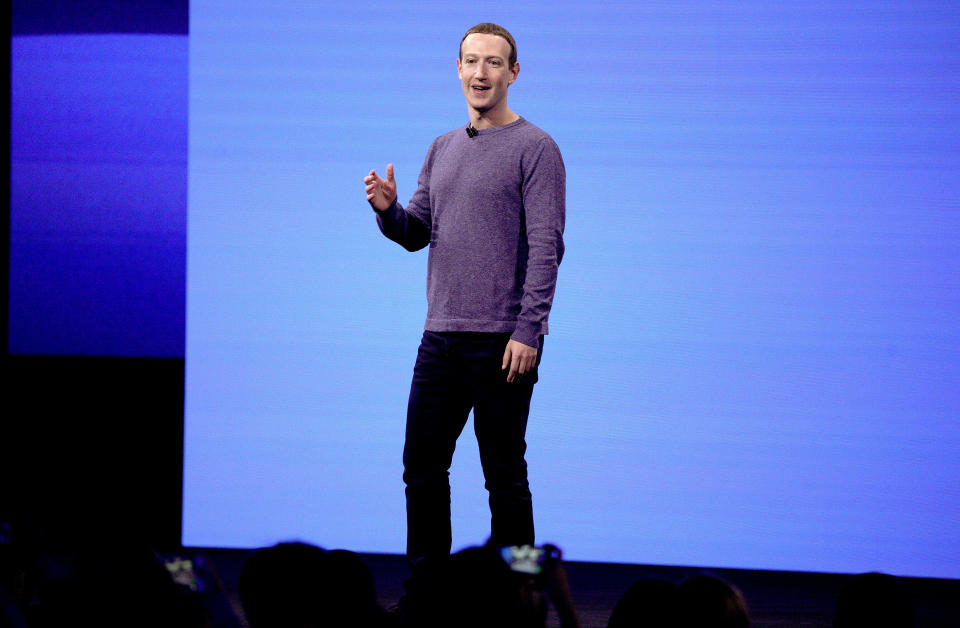Why 'we can't stop' with just making Facebook split up
Facebook’s (FB) unveiling of its new Calibra cryptocurrency project is drawing more scrutiny for the social network, even as calls grow for the company to be split into its parts.
Economist Hal Singer told Yahoo Finance a break-up should be the “last option,” but he says Facebook inflicts serious harm on consumers and competitors – and carving out WhatsApp and Instagram should be considered.
“In hindsight, allowing Facebook to buy up nascent rival platforms Instagram and WhatsApp was a colossal mistake,” Singer, managing director at Econ One Research, said on Yahoo Finance’s “The First Trade.” But “we can’t stop” with just making Facebook break up.
Facebook’s “entire business model is based around exploiting user data,” he said. “If we’re trying to solve data exploitation by a social media behemoth, we need privacy regulations.”

In recent months, Facebook CEO Mark Zuckerberg has turned his focus to private communications, promising a “major shift in how we run this company.” Even he acknowledged that the public might not believe him, telling the F8 Conference that Facebook doesn’t “exactly have the strongest reputation on privacy right now, to put it lightly. But I’m committed to doing this well and starting a new chapter for our product.”
For Singer, there’s a deeper issue at Facebook than just privacy, though. Startups have complained that they’re falling victim to a company looking to win at all costs, and one that seeks out competitors and steals their ideas to build competing functionality.
“If startups can’t explain to investors how they can prevent that appropriation from occurring, they’re not getting funding in Silicon Valley,” Singer said. That poses a real risk to the kind of innovation the economy demands.
Still, going after Facebook and others with antitrust claims may not be helpful. A case could take up to a decade to wind its way through the courts, and even then may not be successful. New regulations can move much faster and may even have a better outcome for the company and for its competitors.
“I think that antitrust can help certainly on the margins,” said Singer, who is also an adjunct professor at Georgetown Business School. “We certainly could always benefit from more competition, but more competition by itself is not going to solve this problem.”
Federal lawmakers are set to probe the country’s largest tech companies over their allegedly anti-competitive practices, the Wall Street Journal reported last week. The Federal Trade Commission has secured jurisdiction over Facebook and Amazon, while the Justice Department will look at Google and Apple. Consumer advocacy groups, including the Electronic Privacy Information Center, urged the FTC to pursue a breakup of Facebook earlier this year.
—
Read more:
What a Facebook breakup would mean for investors
Facebook's cryptocurrency project is called Calibra, will launch in 2020
Read the latest financial and business news from Yahoo Finance
Follow Yahoo Finance on Twitter, Facebook, Instagram, Flipboard, LinkedIn, YouTube, and reddit.